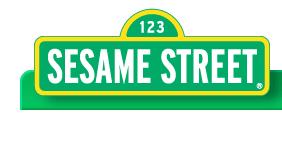Sesame Street and the 'Whole Child'
Blog Post
May 26, 2009

But Sesame's 40th birthday has been on my mind lately because I just wrote an essay about the show for Newsweek. (You can find it in the June 1st issue.)
For readers of Early Ed Watch, the show offers reminders of another sort too: How important it is to create and encourage learning environments for children that focus on many different aspects of their development -- from their social growth to their dawning realizations about how letters and numbers create meaning. In developmentalist jargon, this is called "the whole child,"* and nearly every time I talk to one of Sesame Workshop's experts in their research and education department this is the phrase I hear.
Those who haven't tuned in for many years may not know that Sesame Street builds new episodes each season around a particular theme. In the 40th season, for example, the theme will be "nature" -- encouraging children to explore and touch what they see in the natural world. (With the exception of poison ivy, let's hope.) Threaded through the development of each season's "curriculum" -- yes they call it a curriculum -- are the tenets of whole-child development, trying to provide a balance between teaching academic concepts and modeling behavior that prompts children to share, respect others, ask questions and feel comfortable in their own skin.
Remembering the whole child is critical to building systems of high-quality early education. Yet sometimes the harder-to-quantify concepts -- such as a child's progress in keeping his anger in check -- get lost, particularly when research reports and analyses zoom in, as they should, on the particulars of how to best teach phonemes or when to introduce fractions.
Because Sesame Street has had accumulated 40 years of experience, not to mention a solid research staff with PhDs in developmental psychology, the show has become adept at focusing on not just the ABCs (which most people think of when they remember the show) but also on how to portray events, feelings and relationships in ways that children and their parents can relate to, and learn from.
I'm not saying that Sesame Street should by any means replace preschool. Learning about oneself and the world has to happen in 3-D, in the real world, with thoughtful, caring teachers and adults. But as I wrote this Newsweek piece, I couldn't help but think that it would do us all good to continue reading and learning in the "whole child" tradition.
*For more on the "whole child" approach, see writings by Edward Zigler, professor emeritus at Yale University, including "The Cognitive Child vs. The Whole Child," with Sandra Bishop-Josef's and the foreword he wrote for A Mandate for Playful Learning in Preschool (Oxford, 2008).